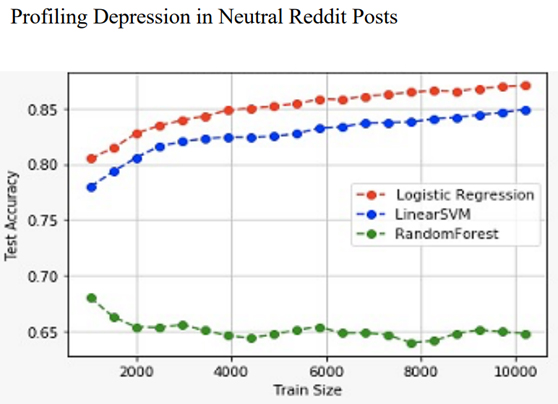More:
News & Stories
ARE YOU DEPRESSED?
In a new digital psychology collaboration between HIT and Texas Tech University, a novel linguistic profiling system distinguished between posts written by depressed vs. non-depressed persons.
A breakthrough study in digital profiling and prediction of mental health vulnerabilities was conducted by Dr. Jonathan Schler and Gilad Gecht of HIT's Department of Computer Science, Prof. Molly E. Ireland of the Department of Psychological Sciences at Texas Tech University and Dr. Kate Niederhoffer, an expert in the mental health technology industry.

Dr. Jonathan Schler
The researchers developed a machine learning algorithm based on deep neural networks. The algorithm was capable of determining whether any random neutral post (unrelated to mental health issues) had been written by a depressed user, based solely on the text's linguistic features.
"The field of Artificial Intelligence equips computers with abilities that had previously belonged exclusively to humans," says Dr. Schler. He explains that in order to generate a machine-learning algorithm, the computer must first be supplied with data from which it can learn.
In this study, the researchers used a collection of over 300,000 posts from the social media, amassed over 10 years and representing nearly 12,000 users. From these they selected 983 individuals who had written of being depressed in relevant forums, but had also posted a total of 2,981 neutral messages – such as requests for technical support – in other forums. This data was fed to the computer together with a random sample from the same neutral forums: 2,822 posts written by 183 users who had not expressed depression. The computer was instructed to analyze the two groups of neutral-content posts according to several linguistic parameters, such as word count and the recurrence of specific words.
"Applying the deep neural network machine learning technology, which resembles the functioning of the human brain, the computer analyzed the texts and taught itself to identify other texts with similar characteristics," says Dr. Schler. Tested on a different, previously unseen collection of texts, the algorithm was able to detect over 80% of the depressed users. Now, presented with any random post from the internet, the algorithm could determine with great accuracy whether that specific text had been written by a person suffering from depression. “We believe that this model, together with similar models targeting other psychological conditions, can potentially become a very effective and useful tool for mental health professionals."
One of the main obstacles on the road to wider implementation of digital psychology is the fact that the system's logic is undecipherable, or in other words, no one really knows exactly how the computer does it. At least for the time being, pending further research, the entire process remains a 'black box' for us humans. " For mental health professionals who are treating real patients, this is a tradeoff that not all are willing to accept, both professionally and ethically," says Dr. Schler. "Perhaps this attitude will change with time, as the contribution of digital profiling to human welfare and emotional wellbeing becomes increasingly irrefutable, while machine learning becomes gradually more explainable."
Dr. Schler is an expert in application of machine-learning and deep learning techniques for purposes of analyzing written texts in order to learn whatever we can about the people who wrote them. Over the past decade, Schler has developed and applied such models to a wide range of texts, collaborating closely with researchers from the Humanities and Social/Behavioral Sciences – as part of the emerging fields known as Digital Humanities and Digital Social/Behavioral Science. Examples of our studies range from compiling a thesaurus for 2000 years of Jewish texts to methods for detecting fake profiles in the social media.”
" In the current study” adds Dr. Schler, “we focus on a critical mental health challenge: employing digital means to identify people suffering from depression. We believe that these predictive models can be used to advance theory in behavioral science. In the future we intend to further develop the system, aiming to create a practical tool that can provide mental health professionals with psychological insights from machine learning algorithms."
The paper was published in the GOOD Mental Health Workshop at the KDD 2020 Conference (add link?)
Posted: 27/01/2021
- News & Events
New Collaboration with Sheba Medical Center will qualify nurses to work in a digital environment.
Collaboration between HIT Holon Institute of Technology, the teaching authority of the Sheba Medical Center, and the Sheba-BEYOND virtual hospital will allow training nurses in Israel and around the world to work in a digital...




 Additional programs
Additional programs
